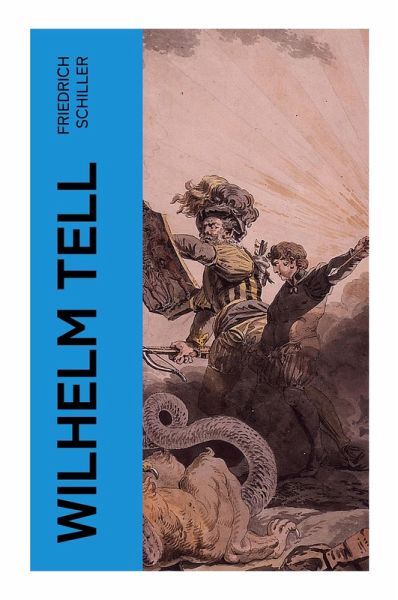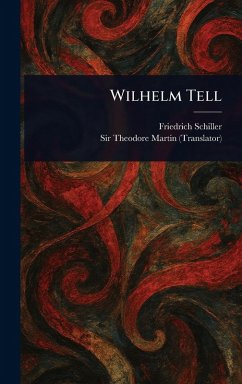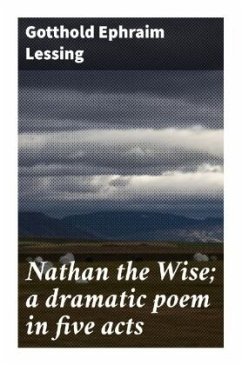
Wilhelm Tell
Versandkostenfrei!
Versandfertig in 6-10 Tagen
12,10 €
inkl. MwSt.

PAYBACK Punkte
0 °P sammeln!
Friedrich Schiller's "Wilhelm Tell" is a profound exploration of themes such as freedom, tyranny, and moral choice, encapsulated within a dramatic narrative set against the backdrop of 14th-century Switzerland. The play employs a rich, lyrical language interspersed with moments of stark realism, showcasing Schiller's mastery of political and philosophical inquiry through intense character interactions. The story revolves around the legendary figure of Wilhelm Tell, whose defiance against the oppressive Habsburg rule symbolizes the desire for liberty and self-determination, reflecting the zeitg...
Friedrich Schiller's "Wilhelm Tell" is a profound exploration of themes such as freedom, tyranny, and moral choice, encapsulated within a dramatic narrative set against the backdrop of 14th-century Switzerland. The play employs a rich, lyrical language interspersed with moments of stark realism, showcasing Schiller's mastery of political and philosophical inquiry through intense character interactions. The story revolves around the legendary figure of Wilhelm Tell, whose defiance against the oppressive Habsburg rule symbolizes the desire for liberty and self-determination, reflecting the zeitgeist of the late Enlightenment era and the burgeoning Romantic movement. Schiller, a prominent figure in German literature, was deeply influenced by the tumultuous political landscape of his time, experiencing firsthand the impacts of oppression and the yearning for emancipation. His personal commitment to the ideals of liberty and humanity propelled him to write this iconic play, which serves not only as a historical dramatization but also as an enduring critique of despotism, embodying the philosophical underpinnings of his works that often grappled with the interplay of personal ethics and societal obligation. "Wilhelm Tell" is a must-read for those intrigued by the intersections of history, politics, and ethical dilemmas. It invites readers to reflect on the nature of justice and the sacrifices demanded in the pursuit of freedom. This timeless classic resonates with contemporary issues of governance and personal agency, making it a relevant and compelling read for all who seek to understand the complexities of human rights and individual courage.












